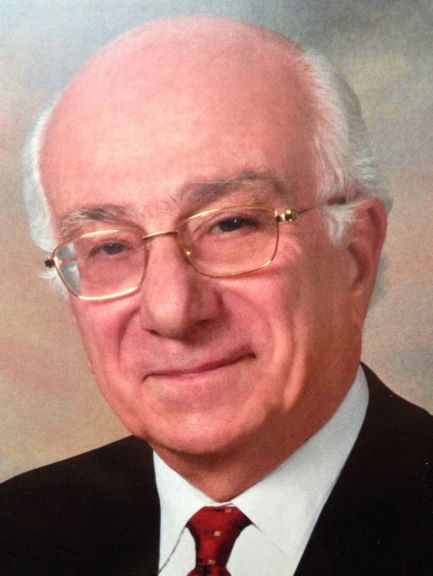By Dr. Arshavir Gundjian, C.M.
The whole world has been watching with utter dismay for over a month the incredible scenes of the devastating war in Ukraine. A peaceful country, with its national identity, history, monuments, and invincible pride, has suddenly been attacked without any provocation by its overwhelmingly powerful neighbor state, Russia, which pretends to have claims on its neighbor supported by nothing more than the logic of brute force supremacy. The overwhelming majority of the civilized world, led by the powerful Western democracies, is reacting with its entire military and financial resources to come to the rescue of Ukraine, victim of this blatant and inhuman injustice. For us Armenians, the above scene is doubly painful to watch.
Indeed, while the destruction and devastation of a country and the suffering of its innocent population is unbearable for any normal human being to watch, we Armenians cannot miss the painful parallel between this tragedy and the one that was endured just about one year ago by Artsakh and Armenia. That tragedy actually still continues to this day in a hardly disguised form. It remains ready to blow up again, at any moment, whenever Azerbaijanis feel sufficiently assured that the world will once more conveniently remain deaf and blind to an equally outrageous scene taking place in that faraway piece of land, lost in the mountains of the Caucasus.
Actually, as much as we find such international injustice absolutely revolting to witness, we must equally recognize that a good share of the blame for such blatant indifference and unfair treatment, falls upon us, Armenians, both in Artsakh and Armenia, as well as in the Diaspora.
It is unquestionable that the current Ukrainian tragedy is almost the carbon copy and repeat of what Artsakh has endured as the victim, 14 months back in 2020, under the unprovoked and unjustified joint criminal aggression of Azerbaijan and Turkey.
In addition to Artsakh’s multimillennial history and monuments, the world ought to have been aware that Artsakh is also de jure an independent state by accepted standards of international law. Indeed, as is well documented – and therefore, there is no need to detail it here again – the internationally prescribed steps, including a properly organized and successfully held referendum of self-determination, have been followed meticulously by Artsakh, around the time of the fall of the Soviet Union in 1990. This unquestionably establishes the independent status of Artsakh. In addition, the genocidal, state-sponsored policy of Azerbaijan, which dates from the Soviet years of its rule over Artsakh, and which is being openly applied still to those areas of Artsakh they have recently occupied, doubly qualify and reinforce Artsakh’s right for independence, based also on the internationally accepted principle of a people’s right of independence to secure its survival. Yet following the aggression that started in September 2020 and lasted 44 days until the disastrous Armenian capitulation of November 9, 2020, the international media has been notoriously unfavorable towards the Armenians’ plight. Quite to the contrary, it has covered that conflict to our full dismay and frustration, as the battle of Azerbaijan to recover its Armenian-occupied lands in the Karabakh region of the Caucasus. The blame for allowing such an odious distortion of reality to prevail must be borne in good part by Armenians themselves.










